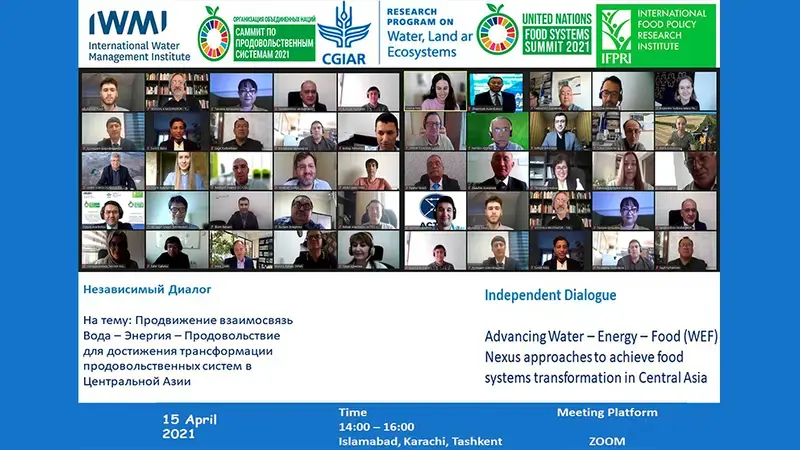ICARDA scientists participate at the UNFSS Independent Dialogue on Central Asia

On April 15, 2021, ICARDA participated at an Independent Dialogue on Central Asia in preparation of the United Nations Food Systems’ Summit (UNFSS). Organized by IWMI and IFPRI, under the CGIAR Research Program on Water, Land and Ecosystems, the dialogue was framed around the theme “Advancing Water-Energy-Food (WEF) approaches to achieve food systems transformation in Central Asia.”
The dialogue convened over 70 participants from international and regional organizations and agencies from Central Asian countries, research institutes, the Academy of Sciences, NGOs, the private sector, donor agencies and CG Centers.
This dialogue enabled ICARDA scientists to be involved in this key process and proved to be an ideal format for Central Asian stakeholders to share their views on sustainable food systems transformation in the region. They also stressed the importance of the WEF approaches in the face of climate uncertainties.
Average annual temperatures across Central Asia since the mid-20th century have increased from 0.5°C in the south to 1.6°C in the north, making the region highly vulnerable to climate change. Building resilience to climate’s mounting impacts like melting glaciers in the uplands and droughts in the lowlands is urgent to reduce poverty and enhance prosperity in the region.
How to reach a common understanding of the most salient issues facing food systems in Central Asia and finding local solutions to sustainably transform water security and water systems were the crucial points discussed by the stakeholders.
The 7 breakout groups focused on the following thematic areas:
-
Moving towards low carbon energy for food production.
-
Climate change impacts on water and food security.
-
Policy coherence and institutional coordination in water, food, energy and climate change that operationalize the WEF nexus;
-
Advancing technical WEF models, tools and frameworks for decision making at multiple scales.
-
Enhancing resilience of water system across multi-sector (agriculture, domestic, industry and environment) demands.
-
Socio-economic benefits of WEF nexus.
-
Community approaches to operationalize WEF nexus.
The discussions were productive and diverse, and set the stage for other upcoming UNFSS dialogues in 2021.
